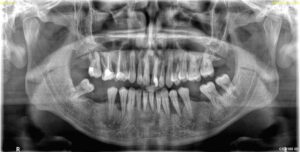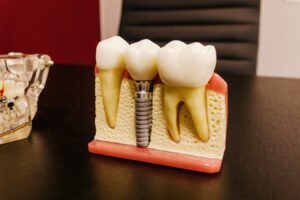More and more people are choosing to travel abroad for dental care—and for good reason. Lower costs, equal or even superior quality of care, and the opportunity to combine treatment with travel all make this option increasingly attractive. However, one crucial question arises for European patients: how can you get reimbursed for dental treatments received in another EU country? This article explores how dental reimbursement works within the European Union, what procedures to follow, and what limitations to be aware of.
1. EU Regulations on Cross-Border Dental Care
Dental treatment abroad
The European Union has established specific directives to facilitate patient mobility across member states. The key legislation is Directive 2011/24/EU on patients’ rights in cross-border healthcare. This directive allows EU citizens to receive medical care—including dental treatments—in another EU country, while still being eligible for reimbursement through their national healthcare system.
Conditions for reimbursement
To be eligible for reimbursement, the treatment must be covered by the patient’s home country’s healthcare system. For example, a French patient getting dental implants in Hungary would only be reimbursed if implants are a reimbursable service under the French system. Additionally, the amount refunded cannot exceed what the home country would pay for the same treatment.
It is highly recommended to research the administrative procedures in advance. Some treatments may require prior authorization from the national health insurance provider. Once authorized, patients are free to choose their provider and the country where they wish to undergo treatment.
Exceptions and limitations
It’s important to understand that not all dental procedures are eligible for reimbursement. Cosmetic or non-essential treatments—such as teeth whitening—are generally not covered. Likewise, EU countries may refuse to reimburse treatments that are not recognized or approved within their own healthcare system. The dental services must be provided by certified practitioners in licensed facilities in the destination country.
2. Administrative Steps for Reimbursement
Getting reimbursed for dental care abroad
Securing reimbursement for dental care abroad involves several administrative steps. Being well-prepared significantly improves your chances of successful reimbursement.
Before traveling: Prepare all required documents
Before your trip, verify that the proposed treatment is reimbursable by your national health insurance. Request a detailed quote from the foreign dentist and submit it to your health insurance provider. The quote should include pricing, treatment details, and information about the dentist. For complex or high-cost treatments, prior authorization may be required. This ensures the treatment is covered and that you’re eligible for reimbursement.
During your stay: Keep all payment and treatment records
While abroad, it’s essential to keep all documentation, such as itemized invoices, prescriptions, and medical reports. These documents are necessary for submitting your claim. Ask the dental clinic to provide a detailed summary of the treatments performed and their medical necessity.
After returning: Submit your reimbursement claim
Once back home, submit your reimbursement application to your national health insurance fund. The claim must include the approved quote, original invoices, payment receipts, and any relevant documentation. The amount reimbursed is based on your home country’s pricing for equivalent treatments. This means the total amount paid abroad may not be fully reimbursed, especially if the foreign rates are higher.
3. The Benefits and Challenges of Cross-Border Dental Care
Why consider dental care abroad?
Choosing dental treatment abroad can offer substantial advantages, particularly in terms of cost and quality. However, there are also challenges to consider to ensure a smooth experience.
Advantages: Cost savings and high-quality care
The main advantage is often financial. Countries like Hungary, Portugal, or Bulgaria are renowned for offering top-quality dental care at significantly lower prices compared to Western Europe. Many clinics in these countries specialize in dental tourism, employing internationally trained professionals and advanced technology. In addition to savings, patients often benefit from personalized and prompt care.
Challenges: Language barriers and post-treatment follow-up
However, cross-border dental care comes with its own set of challenges. A major concern is language. Even though many clinics have multilingual staff, misunderstandings about treatments, costs, or expectations can occur. Another challenge is follow-up care. In the event of complications or the need for additional treatment after returning home, patients may need to travel back or cover additional costs themselves.
Dental care abroad within the European Union is an attractive option for patients seeking quality care at more affordable prices. However, it’s essential to fully understand how the reimbursement process works and follow all necessary administrative procedures to avoid unpleasant surprises.
Choosing Perfeito-smile in Porto means opting for a complete, stress-free dental experience. With our expertise in dental tourism, we guide you every step of the way—from preparing your reimbursement file to providing thorough post-treatment follow-up. Let us help you access high-quality care while enjoying the beauty and hospitality of Portugal.






